White Blood Cells
White blood cells, also known as leukocytes, are a vital part of the body's immune system. They help to defend the body against infections and foreign invaders such as bacteria, viruses, and other pathogens.
Types of White Blood Cells
There are several types of white blood cells, each with its own specific functions:
- Neutrophils: These are the most abundant type of white blood cells and are the first responders to infection.
- Lymphocytes: These cells are responsible for immune responses and can be further divided into T cells, B cells, and natural killer cells.
- Monocytes: They help to break down bacteria and other harmful substances.
- Eosinophils: These cells are involved in fighting parasitic infections and controlling allergic responses.
- Basophils: They release histamine and other chemicals involved in the inflammatory response.
Functions of White Blood Cells
White blood cells play a crucial role in the immune system, including:
- Engulfing and destroying pathogens
- Producing antibodies to help neutralize harmful substances
- Regulating the immune response to prevent excessive inflammation
- Identifying and removing damaged or abnormal cells from the body
Study Guide
Here are some key points to remember about white blood cells:
- What are the different types of white blood cells and their functions?
- How do white blood cells contribute to the body's immune response?
- What is the role of white blood cells in fighting off infections?
- How do white blood cells recognize and respond to foreign invaders?
- What are the potential consequences of a low white blood cell count?
Understanding the role of white blood cells in the immune system is essential for comprehending how the body defends itself against diseases and maintaining overall health.
.◂Science Worksheets and Study Guides Fourth Grade. Rocks and minerals
Study Guide Rocks and minerals
Rocks and minerals  Activity Lesson
Activity Lesson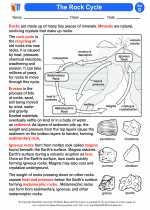 The Rock Cycle
The Rock Cycle  Worksheet/Answer key
Worksheet/Answer key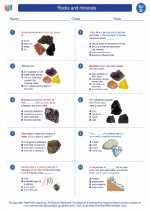 Rocks and minerals
Rocks and minerals  Worksheet/Answer key
Worksheet/Answer key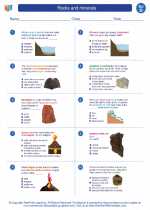 Rocks and minerals
Rocks and minerals  Worksheet/Answer key
Worksheet/Answer key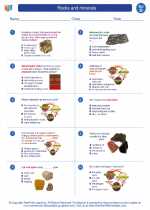 Rocks and minerals
Rocks and minerals  Worksheet/Answer key
Worksheet/Answer key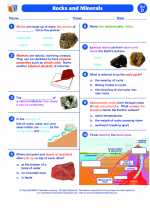 Rocks and Minerals
Rocks and Minerals  Vocabulary/Answer key
Vocabulary/Answer key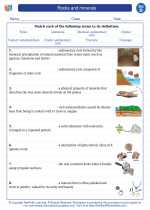 Rocks and minerals
Rocks and minerals  Vocabulary/Answer key
Vocabulary/Answer key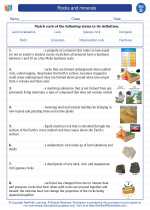 Rocks and minerals
Rocks and minerals  Vocabulary/Answer key
Vocabulary/Answer key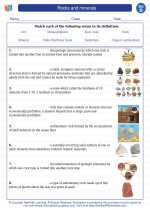 Rocks and minerals
Rocks and minerals  Vocabulary/Answer key
Vocabulary/Answer key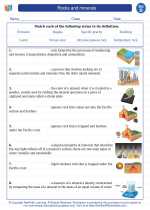 Rocks and minerals
Rocks and minerals 

 Activity Lesson
Activity Lesson
 Worksheet/Answer key
Worksheet/Answer key
 Worksheet/Answer key
Worksheet/Answer key
 Worksheet/Answer key
Worksheet/Answer key
 Worksheet/Answer key
Worksheet/Answer key
 Vocabulary/Answer key
Vocabulary/Answer key
 Vocabulary/Answer key
Vocabulary/Answer key
 Vocabulary/Answer key
Vocabulary/Answer key
 Vocabulary/Answer key
Vocabulary/Answer key

The resources above cover the following skills:
Concepts of Earth Science (SD1, SD2, SD3, SD4)
The student demonstrates an understanding of geochemical cycles by describing that most smaller rocks come from the breaking and weathering of larger rocks as part of the rock cycle.
The student demonstrates an understanding of geochemical cycles by recognizing the physical properties of water as they relate to the rock cycle.